The Glasgow Women's Library: The museum bringing women to the forefront of history and the future
As the only accredited collection of women’s history in the UK, it sprang from grassroot activism in the early 1990s – and is now more important than ever
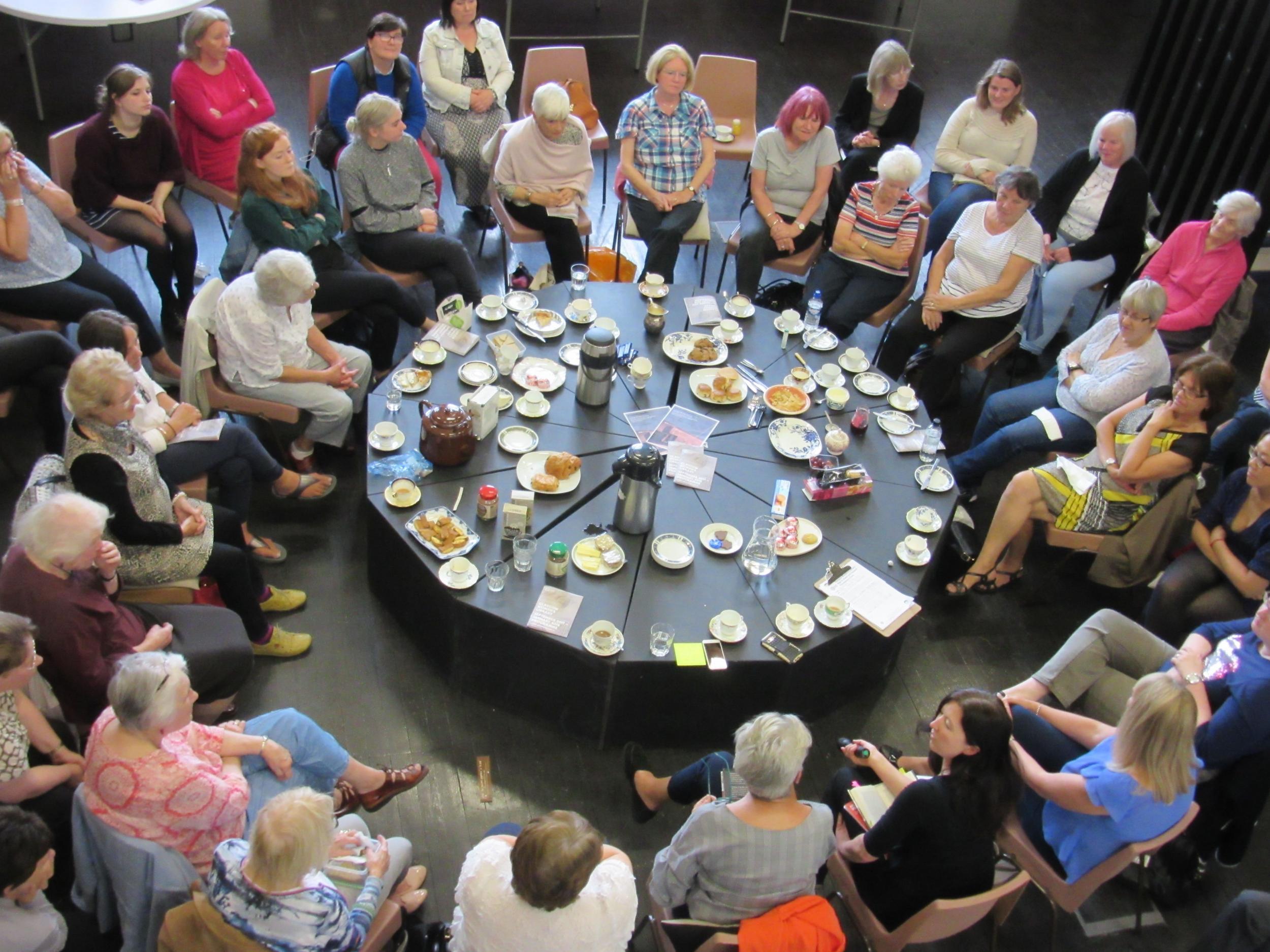
Your support helps us to tell the story
From reproductive rights to climate change to Big Tech, The Independent is on the ground when the story is developing. Whether it's investigating the financials of Elon Musk's pro-Trump PAC or producing our latest documentary, 'The A Word', which shines a light on the American women fighting for reproductive rights, we know how important it is to parse out the facts from the messaging.
At such a critical moment in US history, we need reporters on the ground. Your donation allows us to keep sending journalists to speak to both sides of the story.
The Independent is trusted by Americans across the entire political spectrum. And unlike many other quality news outlets, we choose not to lock Americans out of our reporting and analysis with paywalls. We believe quality journalism should be available to everyone, paid for by those who can afford it.
Your support makes all the difference.“I feel like in the last two or three years we’ve really come into our own at the right moment,” says Adele Patrick, creative development manager of Glasgow Women’s Library, which was founded 27 years ago but has arguably never been more relevant than it is today.
“With campaigns like Black Lives Matter and women’s projects like #MeToo, there’s a revival of activism and an unprecedented appetite for the records of feminist history,” she adds.
As the only accredited museum of women’s history in the UK, Patrick says the library has been inundated with requests for information from researchers, artists, students and activists in very recent times, as well as offers of new materials to add to the collection. For example, documentation of the Repeal the 8th campaign in Ireland.
Yet the truly major recognition which the library has received for the long road it’s taken to get to this point was the recent nomination for Art Fund Museum of the Year. Although it didn’t win at the ceremony in London last week, the library – which has occupied a former public library in Bridgeton in the East End of Glasgow since 2013, after a nomadic life which has includes a spell within the landmark Mitchell Library – was a contender to become the first Scottish institution to have taken the award.
“We were so thrilled when we heard about the nomination,” says Patrick, one of the founders of the library when it sprang from the work of a group of grassroots activists in the early 1990s.
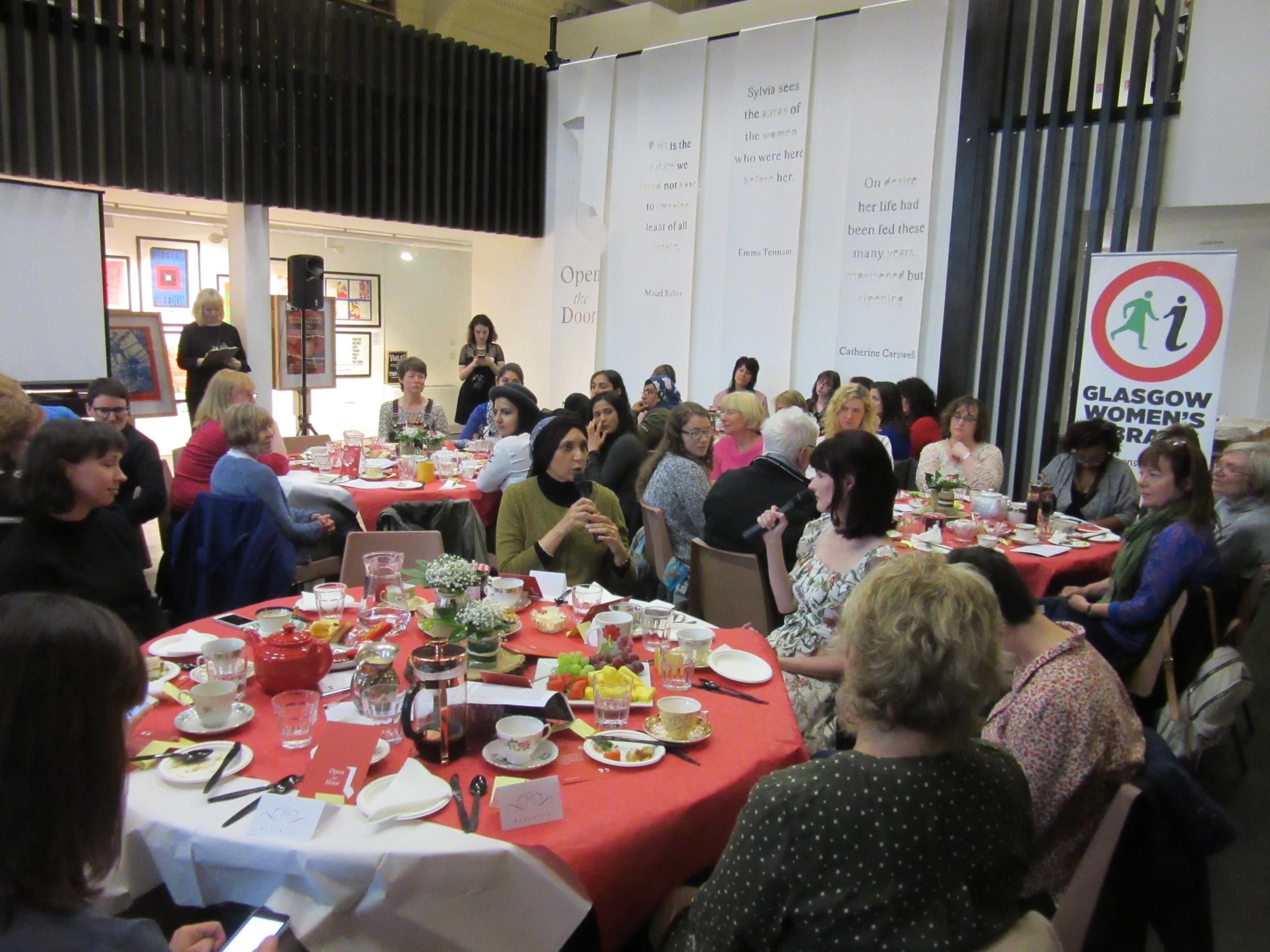
“I think if this had been even five years ago we wouldn’t have had a chance; we didn’t have the profile or the visitor numbers, the level of recognition wasn’t there. But I think now there’s a wider appreciation in the museum sector for organisations like ours, which were on the margins but now have something important to contribute.”
When Patrick first came to Glasgow to study at the School of Art in 1985, she says the one-time industrial centre was a completely different place to the one which enjoys a strong reputation for arts in general today.
“It was an amazing city but you would never believe that it could be European Capital of Culture, as it became in 1990,” she says.
“Glasgow was in the process of announcing its regeneration through a culture-led approach, and I think myself and quite a few other women at the time thought that if we didn’t do something then the representation of Glasgow during the 1990 festival would be virtually all male, which reflected the culture in the city at the time, with very little diversity.
“Our origins were in resistance to what libraries and museums were saying about women’s’ history and culture at the time.”
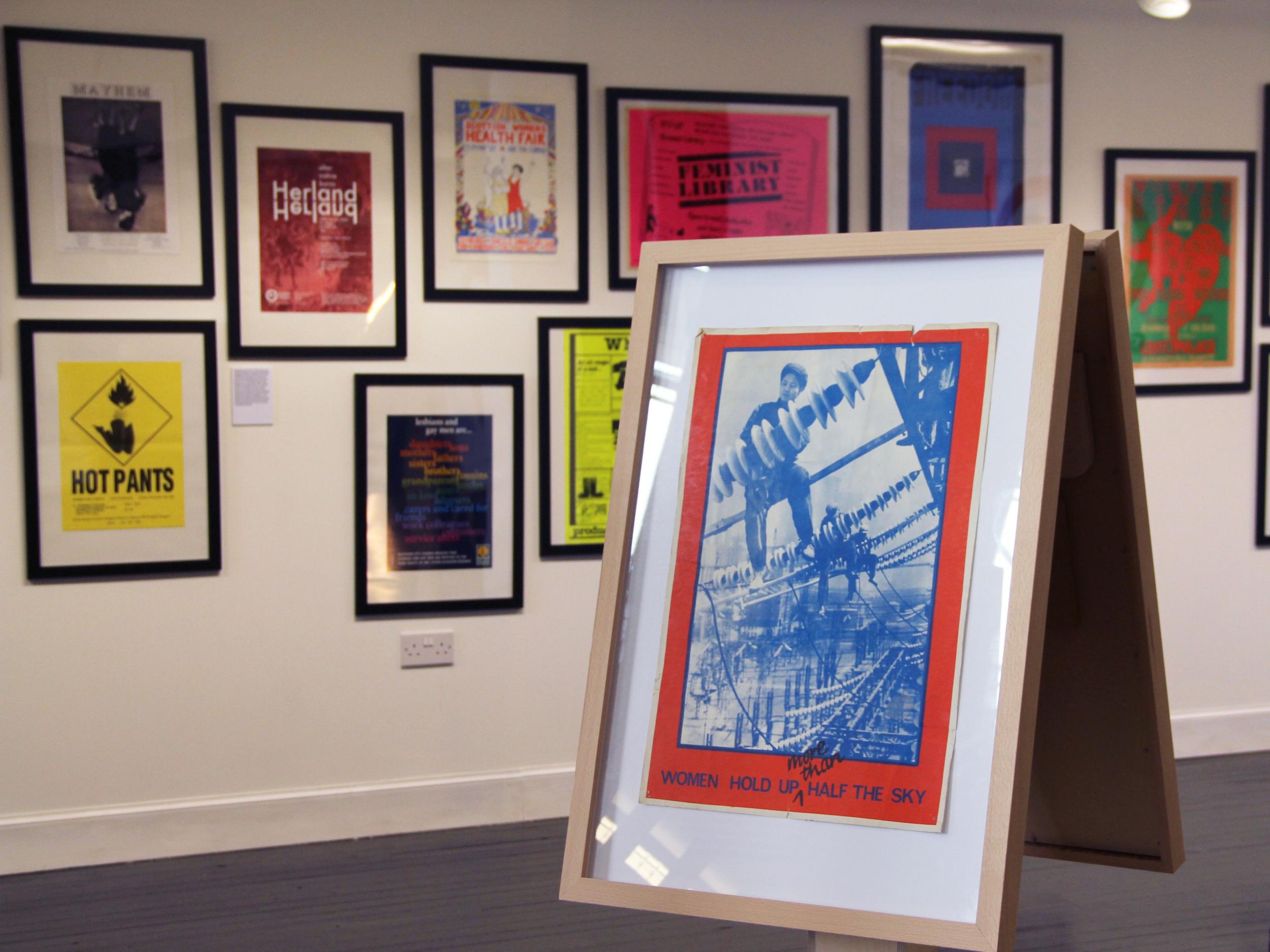
Women in Profile, the arts organisation from which the Library emerged, was founded in 1987, and the opening of the Library in the city’s Garnethill area in 1991 as what Patrick calls a “cultural crucible” caught a cultural wave of the kind which has also arisen today.
“We were a really diverse bunch of women,” says Patrick. “Lots of us were on the brew (dole), lots of us were students, we were of various ages, ethnicities and social backgrounds; we weren’t the kind of people who had a lot of influence on the top levels of culture.”
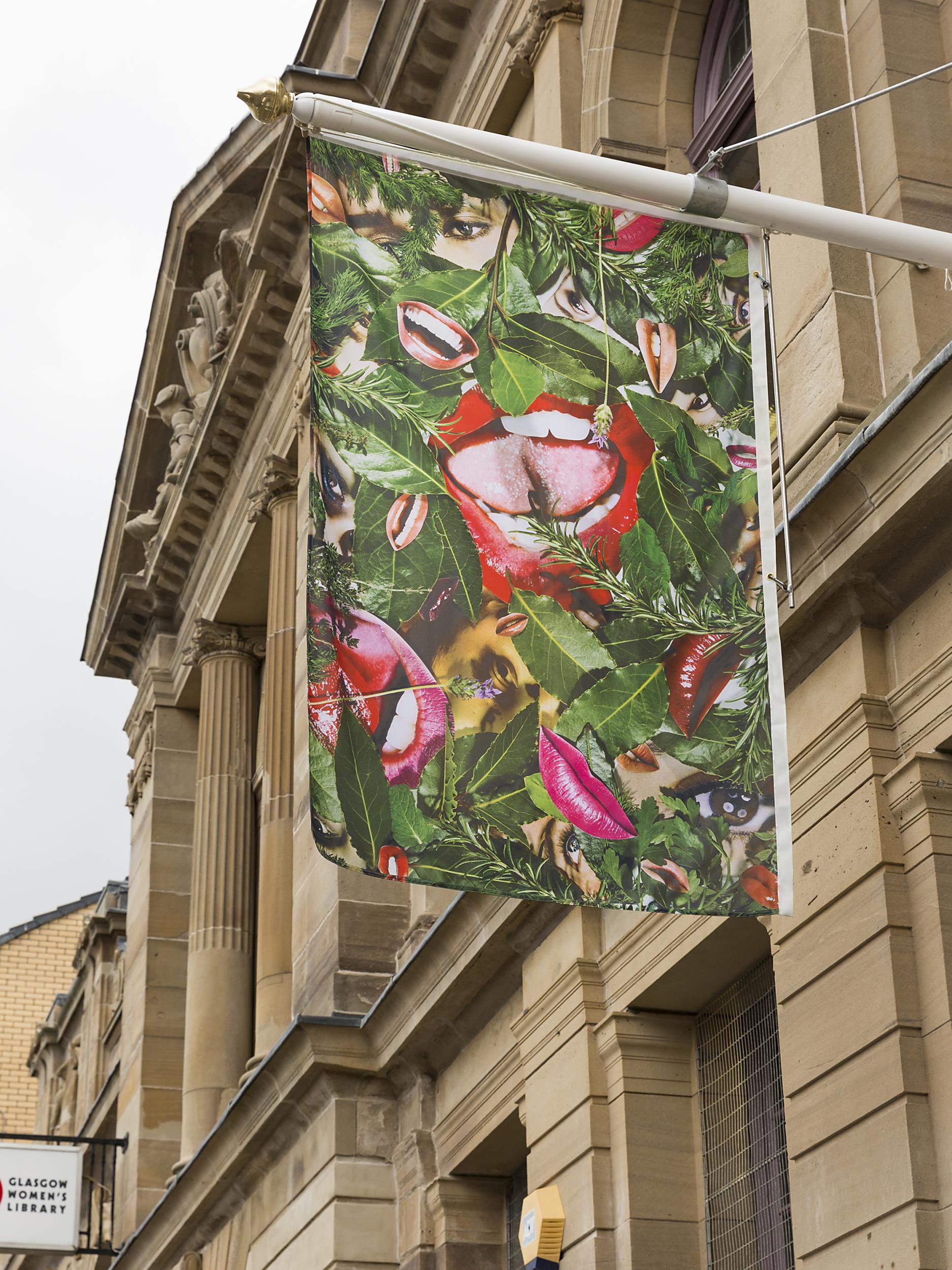
None of those involved, however, were professional librarians, and the past nearly three decades has been what Patrick calls a process of “professionalisation”. The point at which GWL became a “grown-up library”, as she puts it, was when it moved to the Mitchell in 2010, a supposedly permanent home which the rapidly expanding collection quickly outgrew.
“The recognition of an institution like that shows people you’re doing important work and not going away,” she says, “and it also tells people they can entrust items to us, that they’re going to be safeguarded.”
The library appointed its first paid librarian in 2005, and now has 23 staff.
The collection is “incredibly hybrid”, says Patrick, recalling artefacts of domestic life like knitting patterns, to banners, placards and badges from protests.
“Most museums will have a fixed idea of what they collect, but we have a real flexibility,” she says, noting that the collection isn’t just focused on Scotland.
“We accommodate the lives of all women, whether they’re trans or elderly, whether they were communists or in the Girl Guides. We have lots of records of Suffragism and the second wave of feminism in the 1960s, particularly.”
To ask, however, whether GWL really is a library or a museum, is to enter a peculiar grey area. As it starts to perform more of the role of a museum, Patrick says she and her team are keen not to go for an easy rebrand and alienate an audience who may be wary of setting foot in a library, let alone a museum.
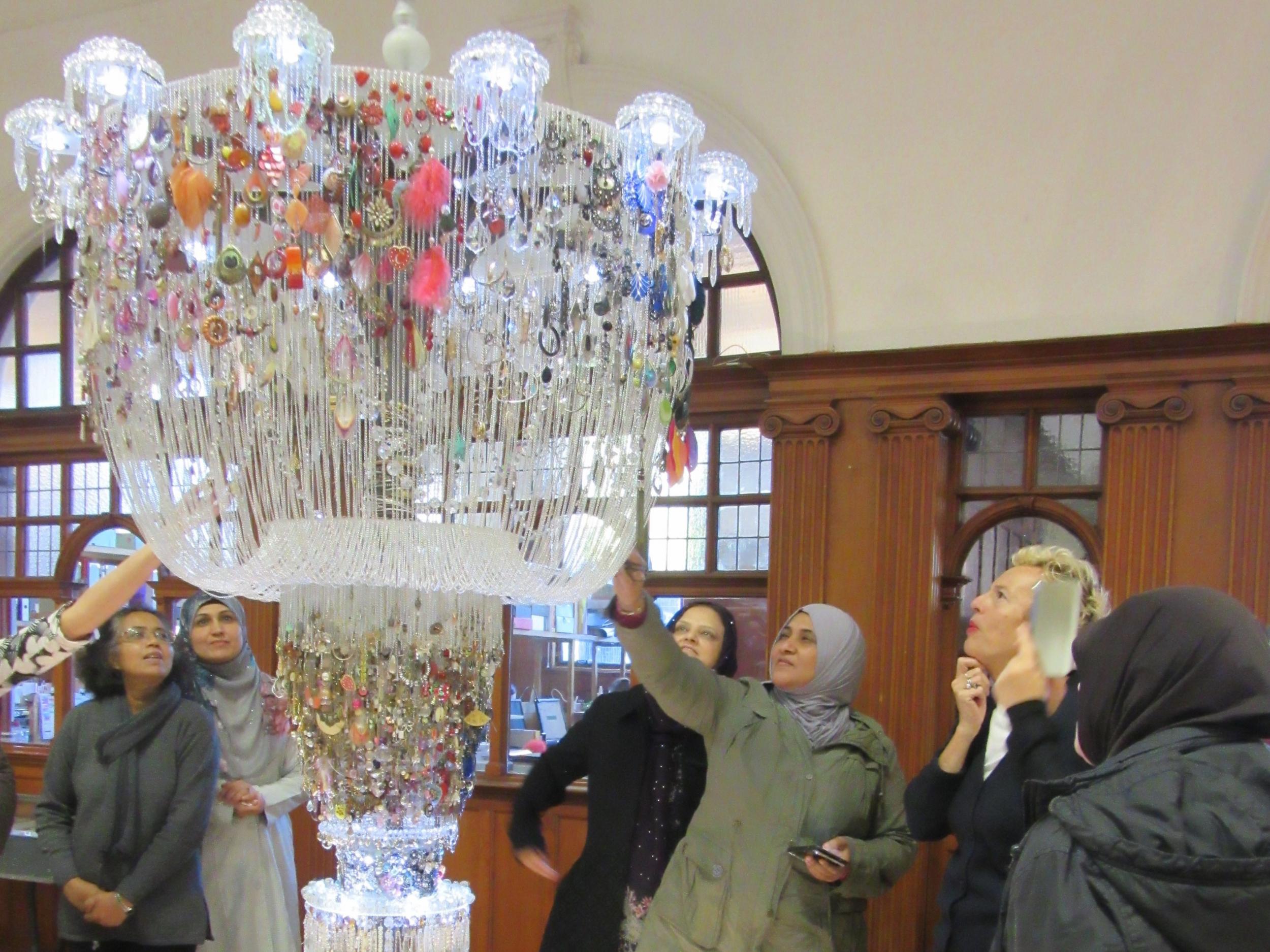
“We’re very fortunate that we’re close to many people who have extraordinary social history documents as a result of their activism on things like changing laws on abortion or domestic violence, yet would never consider taking them to a public museum,” she says.
“We’re very much focused on the fact that we’re a museum for all. But it’s astonishing to me that we can be nominated for Museum of the Year and still have only a part-time museum curator! That will change, though.”
Glasgow Women’s Library is nominated for the Art Fund Museum of the Year 2018 award, which is announced at the Victoria & Albert Museum, London, on Thursday 5 July. Adele Patrick curates the Revolting Women strand at the Edinburgh International Book Festival between Saturday 11 and Saturday 25 August
Join our commenting forum
Join thought-provoking conversations, follow other Independent readers and see their replies
Comments